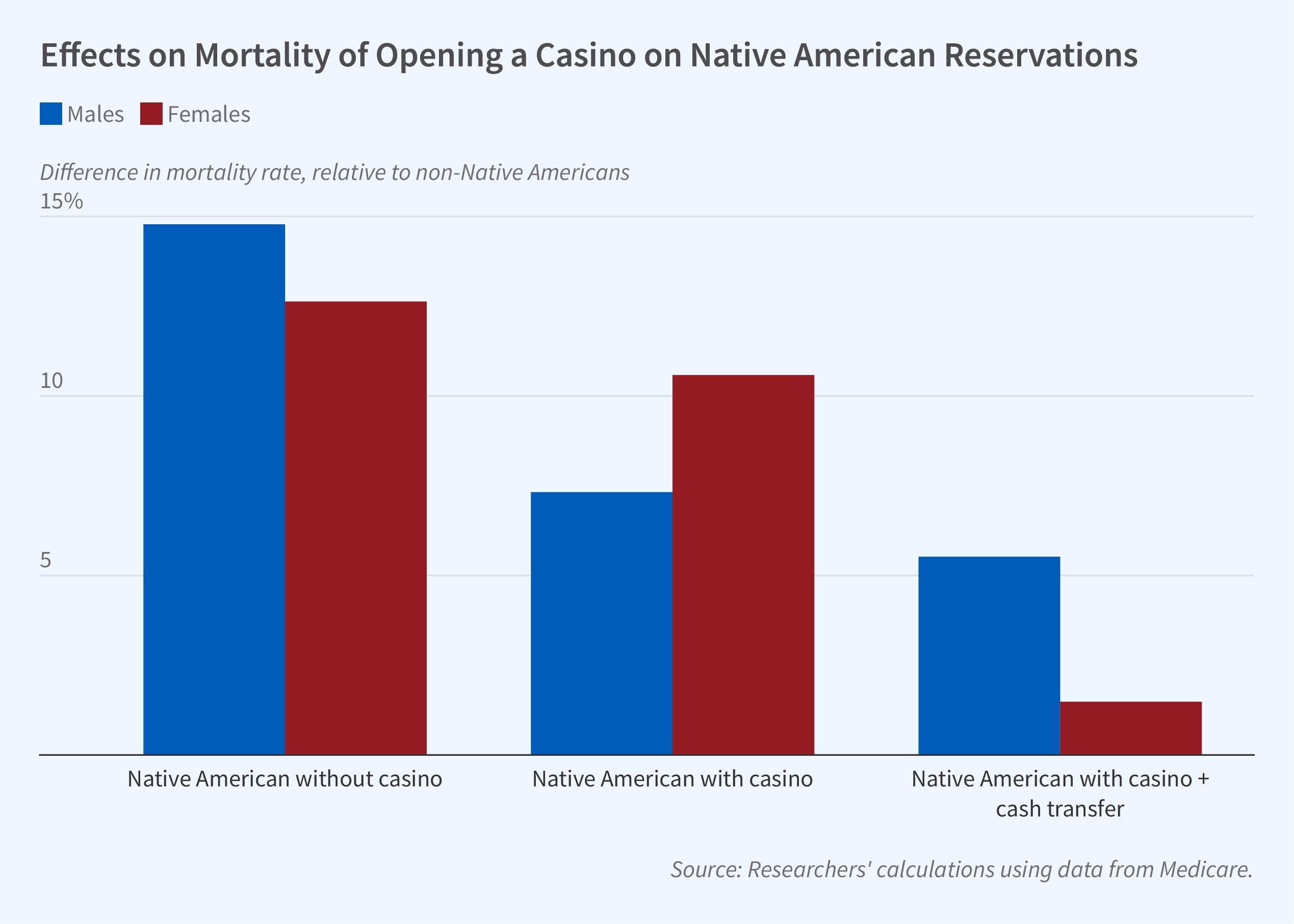Mortality Effects of Casinos on Native Americans

Native Americans have long experienced poor health outcomes and high mortality rates. Poverty, a critical social determinant of health, is pervasive in tribal communities, contributing to persistent inequities. In an effort to address these challenges, some Native American tribes have turned to casino operations as a means of generating revenue and promoting economic development.
The Indian Gaming Regulatory Act of 1988 paved the way for this approach by allowing tribal governments to establish casinos on federally recognized tribal lands. The revenue generated from these casinos has been used to improve living conditions on reservations and, in some cases, has been distributed to tribal citizens as cash transfers. All citizens within a tribe receive equal transfers regardless of age, marital status, or income.
In Economic Development, Unearned Income and Mortality: Evidence from Tribal Casinos, (NBER RDRC Center Paper NB22-05), Randall Akee and Emilia Simeonova study the effect of tribal casino development on the mortality rates of Native Americans and others living on or near reservations that opened a casino after 1999, or didn't open one until 2018. They find that the introduction of tribal casinos and subsequent transfers reduced mortality rates not only for Native Americans but also for other residents in the vicinity of the reservations.
Cash transfers to Native Americans resulting from tribal casino operations reduce mortality for Native Americans as well as others who live on or near reservations with casinos.
The researchers utilize Medicare data from 1999 to 2018 and focus on individuals residing in zip codes located either fully or partially on reservations. Their sample includes all individuals identified as Native American and a randomly selected 20 percent of individuals from other racial backgrounds. The researchers estimate that the life expectancy of Native Americans living on or near reservations in 1999 was about two months shorter than that of their non-Native American counterparts.
The researchers compare the probability of death in any given year for individuals living in areas with casino openings to that for individuals living in areas without casinos while controlling for age and tribal affiliation. Cash transfer agreements are associated with about two-thirds of casino operations; they may be initiated at the time of casino opening or later.
The data suggest that relative to men living in areas without casinos, the mortality rate for Native American men living on or near tribal lands with a newly opened casino decreased by 7.4 percent, a statistically significant finding at the 10 percent level. This reduction translates to a three-week increase in life expectancy compared to non-Native American men in the same areas. A casino opening that was paired with cash transfers was associated with a 9 percent mortality decline for Native American women, which translates to a five-week increase in life expectancy.
— Leonardo Vasquez
The research reported in this paper was performed pursuant to grant RDR18000003 from the US Social Security Administration (SSA) funded as part of the Retirement and Disability Research Consortium. The opinions and conclusions expressed are solely those of the author(s) and do not represent the opinions or policy of SSA, any agency of the Federal Government, or NBER. Neither the United States Government nor any agency thereof, nor any of their employees, makes any warranty, express or implied, or assumes any legal liability or responsibility for the accuracy, completeness, or usefulness of the contents of this report. Reference herein to any specific commercial product, process or service by trade name, trademark, manufacturer, or otherwise does not necessarily constitute or imply endorsement, recommendation or favoring by the United States Government or any agency thereof.


